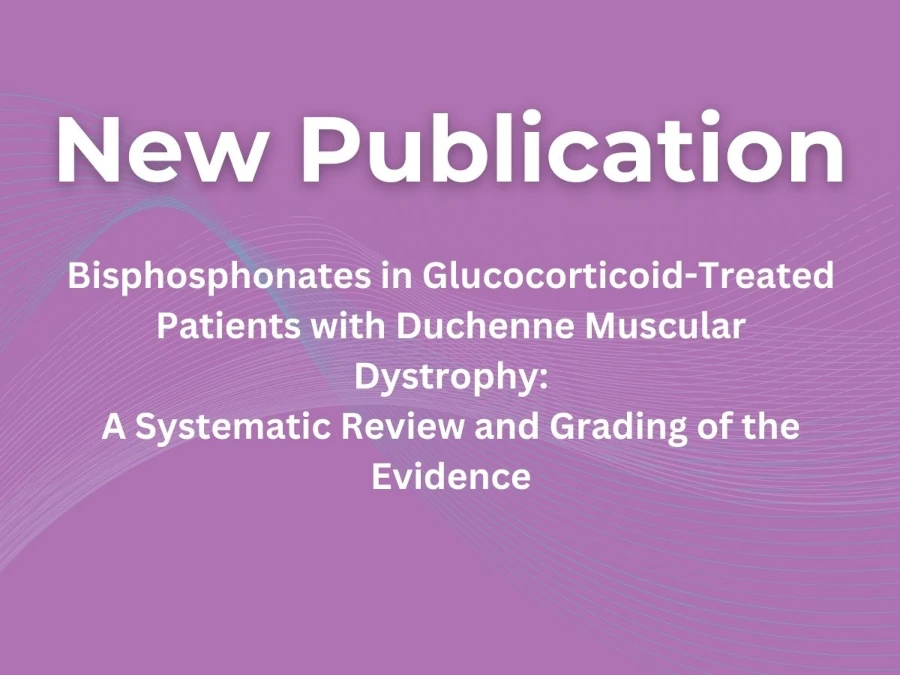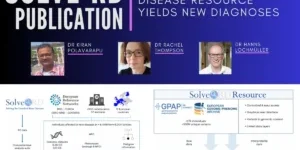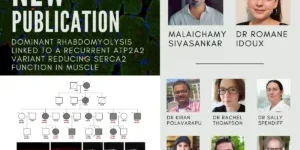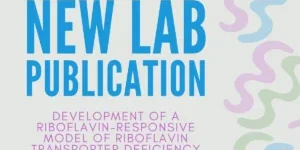New Publication: Bisphosphonates in Glucocorticoid-Treated Patients with Duchenne Muscular Dystrophy: A Systematic Review and Grading of the Evidence
Leading global expert in Duchenne Muscular Dystrophy (DMD) and bone health Dr. Leanne Ward publishes systematic review and grading of evidence for bisphosphonate therapy in glucocorticoid-treated patients with DMD in Neurology, with Dr. Hanns Lochmüller as a co-author.
DMD is a rare neuromuscular disorder primarily characterized by progressive muscle degeneration, with a loss of bone strength (also described as osteoporosis) often observed as a secondary outcome. This osteoporosis is a combined result of disease-associated factors including reduced intake of calcium and vitamin D in DMD patients, further compounded by the osteotoxic effects of glucocorticoids, the primary method of pharmacological management of DMD.
The risk of long-bone fractures is more than doubled in DMD patients undergoing glucocorticoid therapy, and treatment of secondary osteoporosis is a top-of-mind consideration for the multi-disciplinary management of the disease. Bisphosphonate treatment is recommended by the most recent clinical care considerations published in 2018 in single, initial instances of either vertebral or long-bone fracture, with early intervention in DMD patients undergoing glucocorticoid therapy intended to maintain vertebral integrity, prevent further fractures, and reduce risks associated with loss of ambulation.
The publication Bisphosphonates in Glucocorticoid-Treated Patients with Duchenne Muscular Dystrophy: A Systematic Review and Grading of the Evidence addresses the need for a modern, comprehensive understanding of the combined effects of bisphosphonates and glucocorticoid therapies in the treatment of DMD. The authors consider the current body of evidence and provide a systematic review of the benefits and harms and provide a summary of the evidence for bisphosphonate intervention among children and adults with DMD who have undergone glucocorticoid therapy.
“Bisphosphonates in Glucocorticoid-Treated Patients with Duchenne Muscular Dystrophy: A Systematic Review and Grading of the Evidence” is now available as an open access publication in Neurology. From leading global expert in DMD and bone health, Tier 1 Research Chair in Pediatric Bone Disorders at uOttawa, NMD4C investigator and CHEO RI colleague Dr. Leanne Ward, with Dr. Hanns Lochmüller as a co-author.
Reference
Landfeldt E, Phung K, Zaman F, Åström E, Abner S, Lochmüller H, Sejersen T, Ward LM. Bisphosphonates in Glucocorticoid-Treated Patients With Duchenne Muscular Dystrophy: A Systematic Review and Grading of the Evidence. Neurology. 2024 Jan 23;102(2):e207948. doi: 10.1212/WNL.0000000000207948. Epub 2023 Dec 18. PMID: 38165327.







